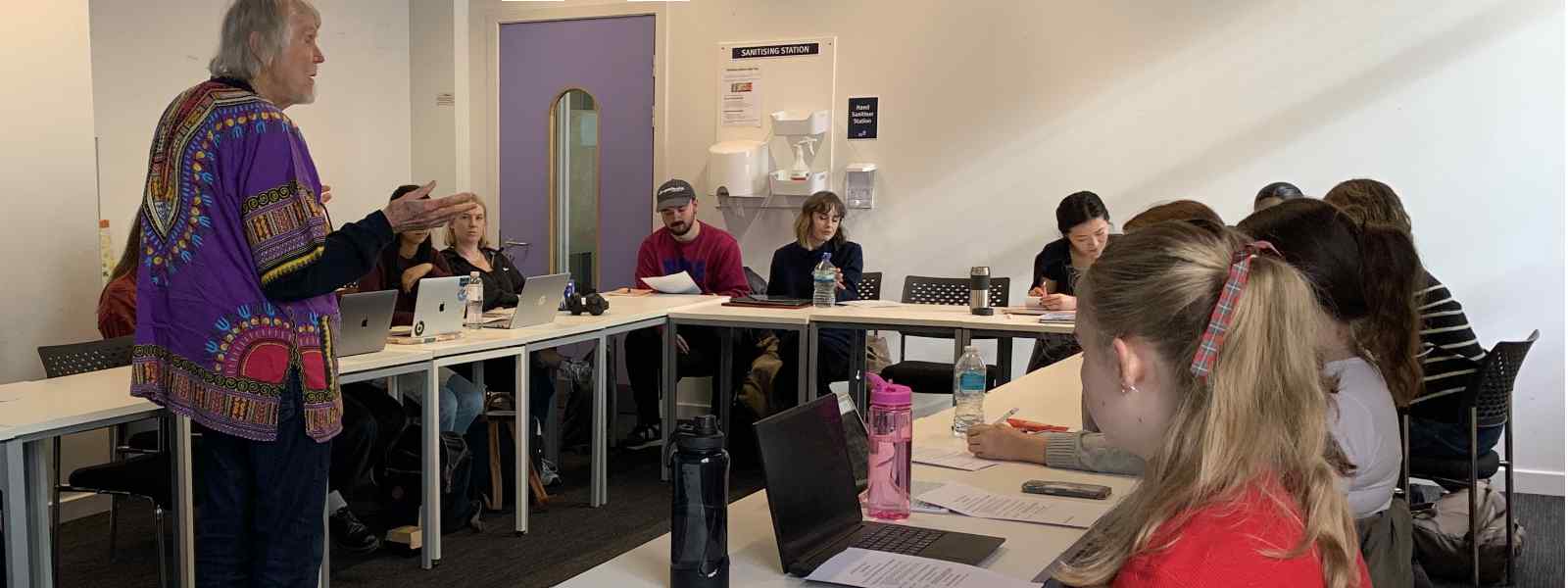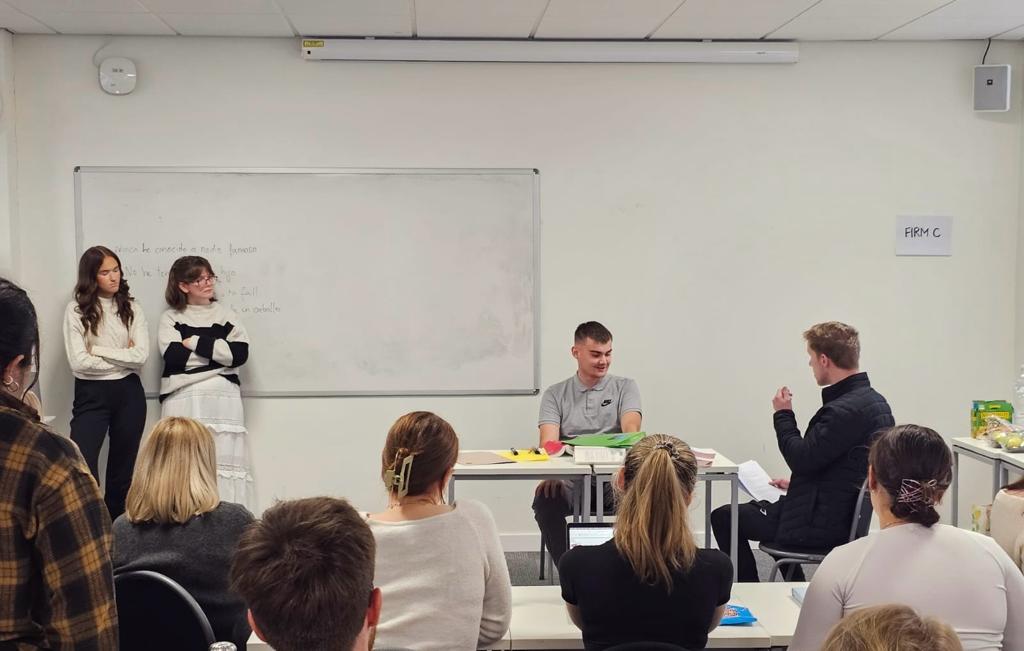
Between the principle of universal access to justice and the practice of it, there is, too often, a sizeable gap. What determines people’s ability to avoid this gap is, equally too often, money.
The safety net of Legal Aid is available to those who are in the most straitened circumstances but there are many others who miss out on meeting its criteria and are still hard put to afford the fees for their case.
This is where Strathclyde Law Clinic has been coming in for the past 20 years. Since it was established by Professor Donald Nicolson OBE in 2003, it has helped more than 4000 people in more than 6000 cases, including some high-profile successes, among them a landmark ruling on Long COVID being legally considered a disability (see case study below). This major achievement was the first case the student advisors involved had ever taken up.
The Clinic recently passed the milestone of £2million won or saved for its clients and in 2022-23 alone, the total was £158,940.
The Clinic has continually evolved and expanded throughout its history, as its lengthy roll-call of awards testifies. Significantly, its day-to-day running is in the hands of Law students, who, unlike those in many other law clinics, not only offer advice to clients but also representation in court and at tribunals – all free of charge. They are augmented in this by a roster of around 25 qualified solicitors, many of them Strathclyde alumni, who volunteer for the Clinic.
Along with the many successes it has achieved for its clients, and the sterling service it provides for communities in Glasgow and the west of Scotland, the Clinic has given valuable practical experience to generations of Law students, many of whom have gone on to enjoy accomplished careers in the legal profession. It also epitomises the socially progressive ethos of Strathclyde.
Clinic Director Kathleen Laverty said: “We have students joining us in their first year and often staying with us until their Diploma year. When we attended the Global Alliance for Justice Education conference in South Africa in 2023, we discovered that there are few other similar organisations which have students going into court as representatives but we have demonstrated the value of this approach.
Confidence for clients
Law is highly complex and it can be difficult for people to gain justice without legal representation. Many of our clients are quite vulnerable for various reasons but our volunteer students and solicitors are able to help them articulate their case with more confidence.
“Many of the people who contact us are seeking one-off advice or guidance. We have a process for this in which we always write a statement or a letter. We also run evening drop-in sessions, which start at 6.30 pm and we can see queues starting to form from 4.30 pm onwards. But we now have the option of Zoom calls and some clients take this; it can save them time, if they have other commitments.
“The largest number of our cases are to do with employment but an increasing number concern housing and consumer matters.”
Community is at the very heart of the Clinic, as its numerous collaborations with partner organisations demonstrate:
- the Criminal Justice Project, in which the Clinic works alongside MOJO (Miscarriages of Justice Organisation) to investigate claims of wrongful convictions and potentially support applications to the Scottish Criminal Case Reviews Commission. MOJO was co-founded by Paddy Hill, one of the Birmingham Six, whose convictions for the city’s 1974 pub bombings were quashed in 1991
- the Asylum Project, which offers assistance to unsuccessful asylum seekers who have pursued every available right of appeal. Many become homeless, have no access to public funds and are unable to work, yet could still have a legitimate case for asylum status and may be at risk if they return to their own country. They will be eligible for accommodation pending an assessment of their case by the Clinic and, in in limited cases, the Clinic can assist in potential fresh asylum applications
- The Scottish Women’s Rights Centre, a partnership between the Law Clinic, Rape Crisis Scotland and Just Right Scotland, established to ensure that victims of gender-based violence have access to timely and appropriate legal advice and information.
The Clinic also previously offered legal advice, in areas such as employment and housing, to prisoners nearing the end of their sentences, to support them in returning to society. This service went into abeyance during the COVID-19 pandemic but work is underway with a view to it being reintroduced in the future.
Environmental justice
Increasing interest in environmental law, particularly in the wake of the COP 26 conference in Glasgow, led to the establishment of the Environmental Justice Project in 2022. It focuses on the impact of climate change on issues such as food security, hazardous waste and despoiled land, extending the work of the Strathclyde Centre for Environmental Law & Governance (SCELG).
Kathleen said: “We offer a holistic and human rights-based approach. Through all our work, we work with people to resolve their problems by informing them about what their rights are and collaborate with them to seek the best outcome for them.

The students have a real sense of ownership of the clinic and that’s very important.”
Strathclyde Law Clinic receives support from the University’s Alumni Fund, which has enabled it to create employment law and Scottish Social Services Council (SSSC) resources, from individual donors and donor David Stirling. The Clinic also receives support from alumni, who offer training and other forms of support.
Case study: Long COVID ruling
An employment tribunal in Scotland ruled in 2022 that ‘Long COVID’ legally amounted to a disability, in the case of a man who lost his job of more than 20 years, nearly nine months after contracting the virus. It was the first case to reach this verdict in the UK and.attracted considerable interest in legal and media circles.
A team of three students from Strathclyde Law Clinic – Melissa McKillen, Angela Walker and Haarisa Akram – successfully represented the man, with Melissa and Angela advocating at the tribunal and Haarisa preparing the case in its initial stages.
The man’s initial COVID-19 symptoms were mild but eventually developed into severe headaches and fatigue. His employer’s Occupational Health department concluded, in two reports, that he would be unlikely to be classed as having a disability under the terms of the 2010 the Equality Act and he was dismissed in August 2021.
He brought claims of disability discrimination and unfair dismissal against his former employers, who argued that his case should be rejected, in accordance with their Occupational Health’s opinion, but the Scottish Employment Tribunal concluded that he was disabled and did have grounds to continue his claim.
The Law Clinic team’s diligence and their persuasive presentation of the man’s case were the cornerstone of his successful claim. Even more remarkably, it was Melissa and Angelas’s first employment case and their first employment tribunal appearance.
Melissa said: “It has been particularly exciting to work on a case that concerns such a live issue and to know that this was the first proven case of Long COVID as a disability in a UK tribunal. It is heartening to see the amount of attention that our case has received from solicitors and law firms, given that we as student advisors are at such an early stage in our careers!
“The outcome of the preliminary hearing in this case underlines how helpful the Clinic can be to those in need of advice and assistance, as claimants at the Employment Tribunal may not be aware of how best to establish preliminary issues.”
Testimonials
“I have gained so much confidence as a lawyer through clinical work. Importantly, my work in the clinic has solidified my drive to be an ethical lawyer throughout my career and provided me with a real commitment to provide access to justice wherever I can.”
Clinic student volunteer
“(The student) demonstrated first class understanding of the issues, an admirable grasp of the evidence, and an eloquent but succinct style of presentation. ….it is comforting to know this is the calibre of students available to the profession and that the Law Clinic does a great job in nurturing them while providing accessible representation of this standard".
Employment tribunal judge, on a student who represented a client
“I specifically signposted the claimant to the Law Clinic. It regularly provides students advisors who represent claimants before this Tribunal, thus addressing an otherwise unmet need for legal advice and assistance. Its website contains much useful guidance for unrepresented parties and I suggest the claimant enquire further.”
Employment tribunal judge
“I would reiterate the Sheriff's sentiment that your preparations for and conduct at the Timebar Hearing far exceeded that of some qualified solicitors I have come across and hopefully you can take that experience in to what will, no doubt, be long and successful careers.”
Opposing solicitor
“For now, please know that I was in a dark place and your kindness, skills, work ethic and professionalism have done so much to help bring me out of that. I really mean it when I say thank you and that you deserve all the best that this life has to offer.”
“Thank you for everything you have done for me, I could not have achieved this outcome without your assistance, you all have been very professional and will do great in whatever you go on to do. The service that the law clinic offered me was outstanding….”
“I can tell you now. I had been badly let down by others. I was at a very low ebb when I met them. James Hamilton, Katy Li and Gordon Gow showed professionalism well beyond their years. In my estimation the three of them will go right to the top of their profession.”
Law Clinic clients